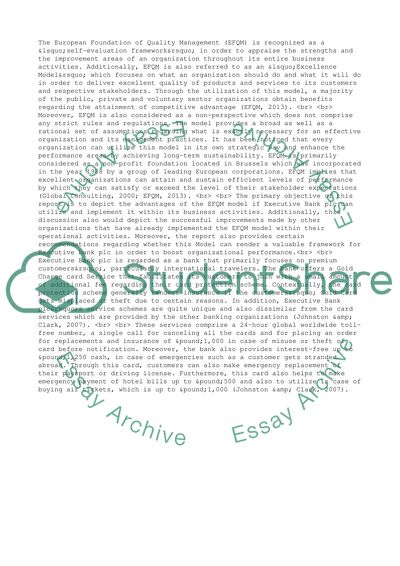Cite this document
(The European Foundation of Quality Management Model Research Paper, n.d.)
The European Foundation of Quality Management Model Research Paper. Retrieved from https://studentshare.org/management/1473120-assignment
The European Foundation of Quality Management Model Research Paper. Retrieved from https://studentshare.org/management/1473120-assignment
(The European Foundation of Quality Management Model Research Paper)
The European Foundation of Quality Management Model Research Paper. https://studentshare.org/management/1473120-assignment.
The European Foundation of Quality Management Model Research Paper. https://studentshare.org/management/1473120-assignment.
“The European Foundation of Quality Management Model Research Paper”, n.d. https://studentshare.org/management/1473120-assignment.


